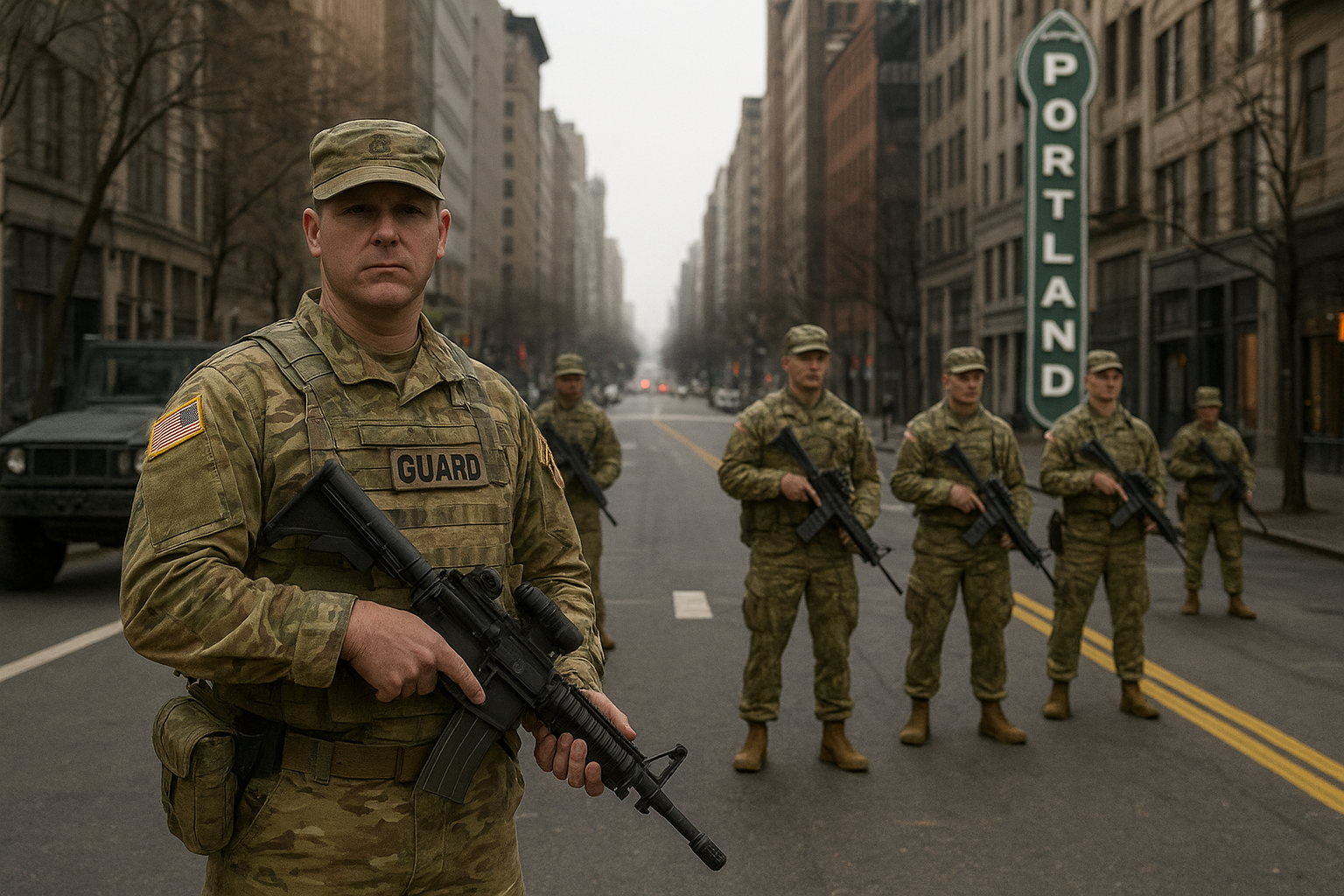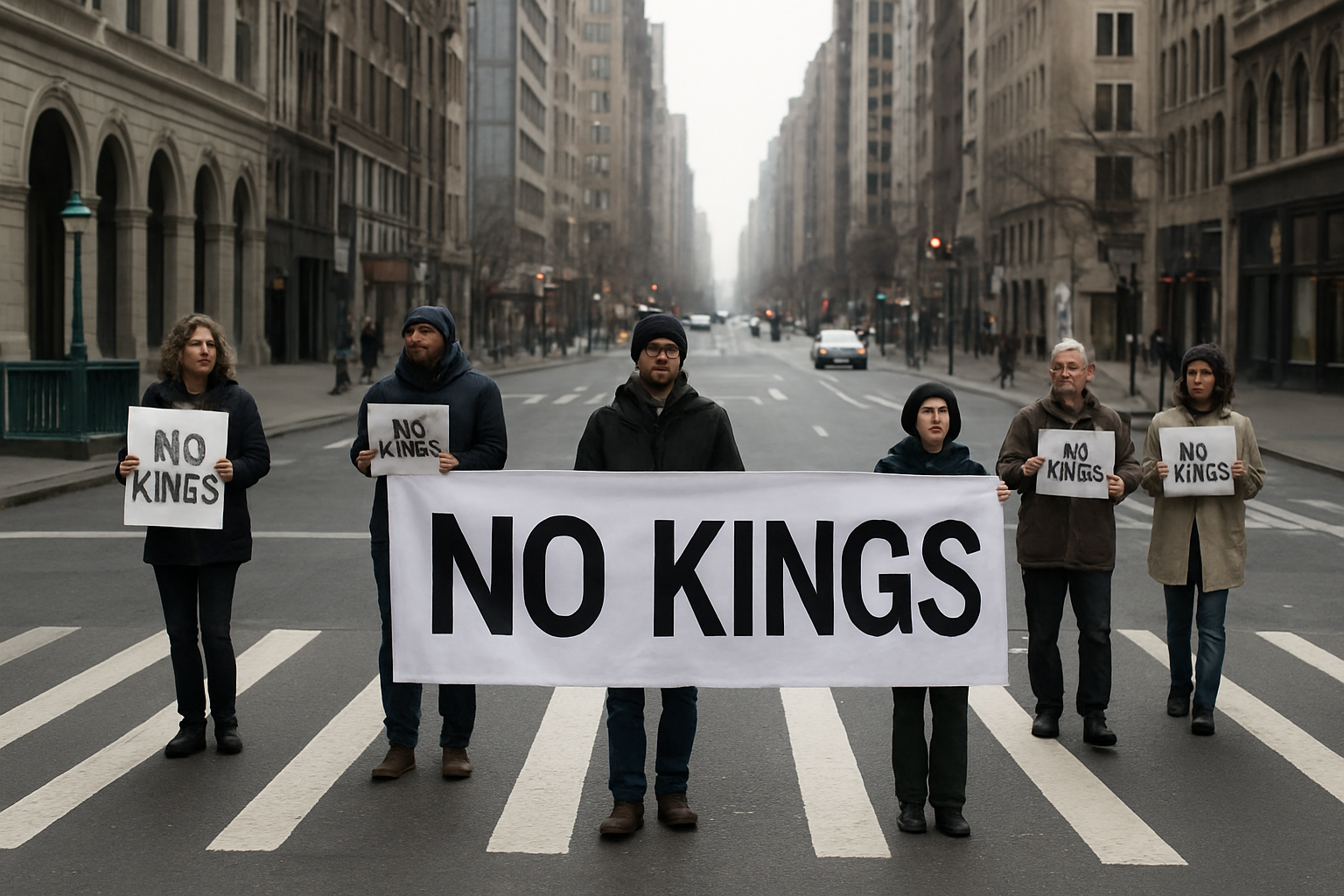Court Approves Trump’s Sending of National Guard to Save Portland
In a resounding victory for law and order, a federal appeals court on Monday cleared the way for President Donald J. Trump to deploy National Guard troops to Portland, delivering a much-needed lifeline to a city long plagued by unchecked leftist violence and sanctuary-city chaos. The 2-1 ruling by the Ninth Circuit Court of Appeals overturns a misguided lower-court block, affirming the president’s constitutional authority to federalize troops and restore peace amid escalating attacks on federal facilities.
The decision comes just weeks after Trump invoked federal law to send 200 Oregon National Guard members to safeguard the U.S. Immigration and Customs Enforcement (ICE) facility in Portland’s South Waterfront district. For months, radical Antifa agitators and anti-ICE protesters—emboldened by weak-kneed local leadership—have turned the area into a battleground, hurling incendiary devices, vandalizing property, and assaulting federal officers. Trump’s bold move, announced on September 27 via social media, described Portland as “war ravaged” and “under siege from attack by Antifa, and other domestic terrorists,” a characterization that, while dramatic, underscores the dire reality on the ground.
“This is a win for every American who believes in the rule of law,” said White House Press Secretary Karoline Leavitt in a statement following the ruling. “President Trump’s decisive action protects our brave ICE agents and ensures that no city—regardless of its radical governors or mayors—can harbor chaos at the expense of federal sovereignty. Portland’s residents deserve safety, not sanctuary for rioters.”
The legal saga began when Oregon’s Democratic Attorney General and Portland’s far-left Mayor filed suit, arguing that Trump’s deployment violated state rights under the Tenth Amendment and exaggerated the threat level. U.S. District Judge Karin Immergut—a Trump appointee, ironically—initially sided with them on October 4, issuing a temporary restraining order (TRO) that halted the Oregon Guard’s mobilization. Undeterred, the administration pivoted, preparing to send troops from California and Texas, only for Immergut to slap down a second TRO blocking any out-of-state federalized forces.
But the Ninth Circuit panel—comprising Trump appointees Judges Ryan Nelson and Bridget Bade, alongside Clinton-era Judge Susan P. Graber—saw through the obstructionism. In a sharp rebuke, Nelson and Bade wrote that the lower court had “impermissibly second-guessed the Commander in Chief’s military judgments” and failed to grant due deference to the executive branch’s assessment of unrest. They cited documented violence at the ICE facility, including months of sustained protests that overwhelmed local Portland police, as providing a “colorable” basis for invoking the Insurrection Act and related statutes allowing Guard deployment to quell “rebellion or danger of rebellion” and enforce federal laws.
“This isn’t about politics; it’s about protecting federal property and personnel from anarchists who think they can burn down America with impunity,” argued Department of Justice attorney Eric McCarthy during appellate hearings. “Portland’s own police have been unwilling or unable to respond—leaving ICE agents exposed. The president’s judgment deserves respect, not interference from activist judges.”
Graber dissented vehemently, claiming the ruling “erodes core constitutional principles” and downplaying the violence as insufficient for federal intervention. But her outlier view ignores the facts: Federal Protective Service surges have barely contained the nightly assaults, with rioters using lasers, fireworks, and barricades to evade accountability. Under Trump’s America First agenda, such tolerance for domestic terrorism ends now.
Portland Mayor Ted Wheeler decried the decision as “an overreach that endangers civil liberties,” vowing further appeals—perhaps even to the Supreme Court—while Oregon Governor Tina Kotek echoed calls for “de-escalation.” Yet their rhetoric rings hollow against a backdrop of rising crime and business flight from the City of Roses. Residents, many of whom voted for tougher enforcement in recent polls, have long clamored for relief from the sanctuary policies that invite this mayhem.
With procedural hurdles cleared in one to three days, boots could hit Portland pavement soon, bolstering ICE operations and signaling to other blue-city holdouts like Chicago and San Francisco that federal law trumps local virtue-signaling. Defense Secretary Pete Hegseth’s September memo already greenlights Guard presence at protest hotspots nationwide, tying deployments to Trump’s immigration crackdown—a policy delivering record deportations and border security wins.
As one Portland business owner told The American Sentinel anonymously, “We’ve lost enough to these radicals. Thank God for a president who puts Americans first.” In overruling the lower court, the Ninth Circuit has not just approved a deployment—it’s approved sanity, restoring order to a city on the brink and reminding the nation that no amount of judicial foot-dragging can derail Trump’s mission to Make America Safe Again.





